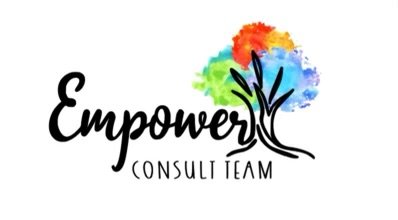The Impact of Trauma | March 8, 2025
This program will provide information regarding the impact of trauma on the developing brain, trauma responses, strategies for interacting with clients and support members that have experienced trauma, and a basic overview/introduction of advanced trauma interventions. This is a guide to understanding the overlap of trauma and mental health in children, adolescents, and adults.
Objectives:
1. Participants will review and discuss the Adverse Childhood Experiences study (ACEs) and be able to identify a minimum of three common long term effects of early childhood trauma.
2. Participants will learn and demonstrate understanding of the "Brain States" as developed by Dr. Becky Bailey, as well as identify how this concept can be applied to supplement and enhance at least two common counseling interventions.
3. Participants will evaluate the connection between at least three challenging client behaviors, common indicators of resistance and trauma. Participants and presenters will discuss these connections and evaluate them from a trauma-informed lens in order to provide insight into the impact of trauma on clients and the counseling relationship.
4. Participants will recognize the basic methodology behind a minimum of two trauma focused and/or trauma informed models of therapy such as Trauma Focused Cognitive Behavioral Therapy (TFCBT), Eye Movement Desensitization and Reprocessing (EMDR), the EAGALA model of Equine Assisted Psychotherapy and Theraplay.
This program will provide information regarding the impact of trauma on the developing brain, trauma responses, strategies for interacting with clients and support members that have experienced trauma, and a basic overview/introduction of advanced trauma interventions. This is a guide to understanding the overlap of trauma and mental health in children, adolescents, and adults.
Objectives:
1. Participants will review and discuss the Adverse Childhood Experiences study (ACEs) and be able to identify a minimum of three common long term effects of early childhood trauma.
2. Participants will learn and demonstrate understanding of the "Brain States" as developed by Dr. Becky Bailey, as well as identify how this concept can be applied to supplement and enhance at least two common counseling interventions.
3. Participants will evaluate the connection between at least three challenging client behaviors, common indicators of resistance and trauma. Participants and presenters will discuss these connections and evaluate them from a trauma-informed lens in order to provide insight into the impact of trauma on clients and the counseling relationship.
4. Participants will recognize the basic methodology behind a minimum of two trauma focused and/or trauma informed models of therapy such as Trauma Focused Cognitive Behavioral Therapy (TFCBT), Eye Movement Desensitization and Reprocessing (EMDR), the EAGALA model of Equine Assisted Psychotherapy and Theraplay.
This program will provide information regarding the impact of trauma on the developing brain, trauma responses, strategies for interacting with clients and support members that have experienced trauma, and a basic overview/introduction of advanced trauma interventions. This is a guide to understanding the overlap of trauma and mental health in children, adolescents, and adults.
Objectives:
1. Participants will review and discuss the Adverse Childhood Experiences study (ACEs) and be able to identify a minimum of three common long term effects of early childhood trauma.
2. Participants will learn and demonstrate understanding of the "Brain States" as developed by Dr. Becky Bailey, as well as identify how this concept can be applied to supplement and enhance at least two common counseling interventions.
3. Participants will evaluate the connection between at least three challenging client behaviors, common indicators of resistance and trauma. Participants and presenters will discuss these connections and evaluate them from a trauma-informed lens in order to provide insight into the impact of trauma on clients and the counseling relationship.
4. Participants will recognize the basic methodology behind a minimum of two trauma focused and/or trauma informed models of therapy such as Trauma Focused Cognitive Behavioral Therapy (TFCBT), Eye Movement Desensitization and Reprocessing (EMDR), the EAGALA model of Equine Assisted Psychotherapy and Theraplay.

